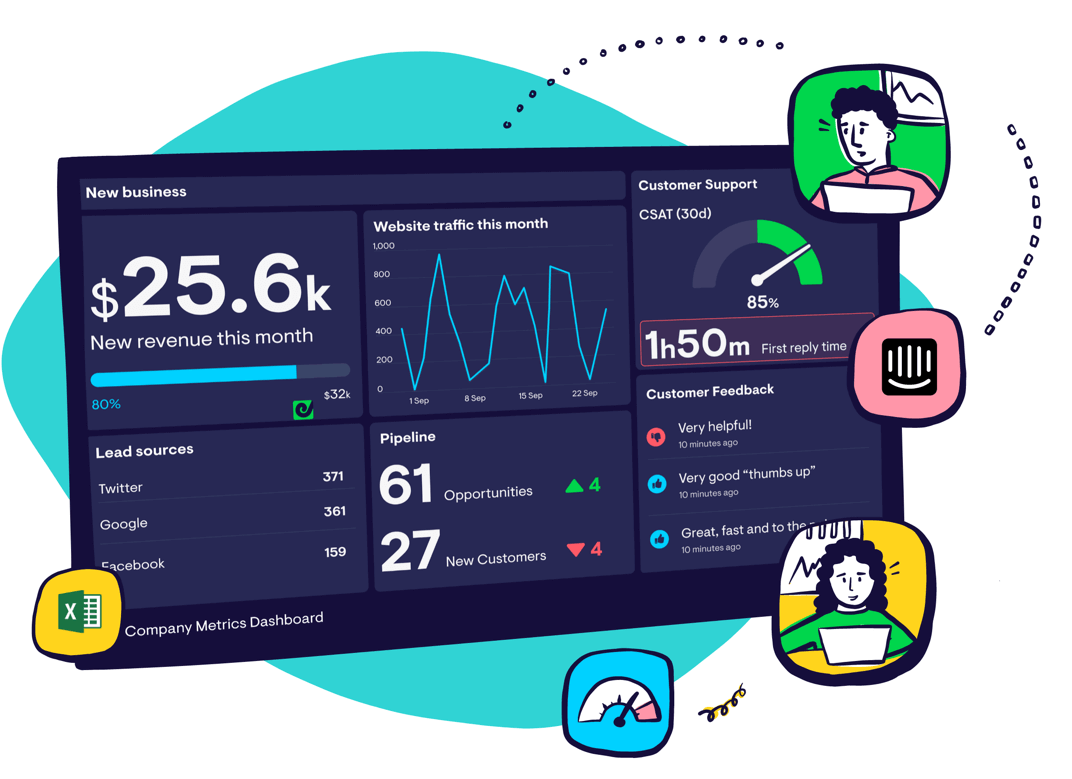Retention Rate
What is Retention Rate?
The Retention Rate is the percentage of people who continue to use your app over a given period of time (week, month, or quarter). It’s the inverse of user churn. (If your 90-day Retention Rate is 25%, then your churn is 75%.)
The Retention Rate can also involve a cohort analysis to determine how users who downloaded the app around the same time (usually within the same month) fare compared to other clustered users (cohorts).
Advice from Mobile App Experts
“Understanding your app’s retention rate and how it stacks up to the benchmark rates seen in your vertical and across the larger mobile ecosystem is an essential part of figuring out your customer engagement and retention strategy. Retaining new app users isn’t easy, with more than 75% of users failing to return the day after first use, on average.” - Todd Grennan, Senior Content Producer at Appboy
“Knowing your retention gives you a much better indication of your app’s success and current customer-base. Your app might have 100,000 downloads, but how many of these people are actually active?” - Alex Walz, Head of Growth at Lighter Capital
How to calculate Retention Rate
Aggregate Retention Rate:
(#) Monthly active users / (#) Installs = (%) Aggregate Retention Rate
Cohort Analysis:
(#) Users retained at the end of time period / (#) installs at start of time period = (%) Retention Rate for Cohort
Calculating the Retention Rate can be done a couple of different ways. Your Aggregate Retention Rate is simply the total number of monthly active users divided by the total number of installs.
If you want to compare specific time periods (Retention Rate for Cohorts), first determine what cohort you want to analyze - weekly, monthly, quarterly, or perhaps something more custom to your specific app. Then divide the number of users retained at the end of the time period by the number of installs at the start of the time period to get the percent of retained users.
For example, if you have 5000 app installs at the beginning of the month and 1250 of those users are retained at the end of the month, your Retention Rate would be 25%.
1250 / 5000 = 25% Retention Rate
Pros:
The Retention Rate is a leading indicator of growth trends and potential revenue. It shows the stickiness of the product. The Retention Rate is a much more insightful metric than downloads or acquisition because it doesn’t matter how many installs you have if you’re not able to retain those users.
It’s particularly helpful to analyze user retention by cohorts to better understand user behavior and determine possible causes for significant changes or trends.
Cons:
Tracking only the aggregate Retention Rate may distort the current trend of retaining users. For example, if you make a significant improvement to the user experience, your retention rate might go up. But if you’re still tracking it in aggregate, you may not notice very much of a change.
This is why cohort analysis - tracking and comparing Retention Rates by specific time periods - is so important.
Relevant Mobile App Metrics and KPIs:
Industry Benchmarks
Although exact benchmarks vary by industry, mobile apps on average have a 30-day Retention Rate of 42% and a 90-day Retention Rate of 25%. The average 30-day rate broken down by industry ranges from 27% to 43%, but for higher performing apps, that range is 32% to 66%. See more details here.
While the average hovers around 20% 90-day retention, it’s best to aim for 25% or higher depending on your industry.
| Mobile App Industry | Average Retention Rate Benchmark for 30+ days | Average Retention Rate Benchmark for 90+ days |
|---|---|---|
| Media & Entertainment | 43% | 24% |
| eCommerce/Retail | 37% | 18% |
| Travel & Lifestyle | 36% | 18% |
| Technology | 33% | 19% |
| Gaming | 27% | 10% |
